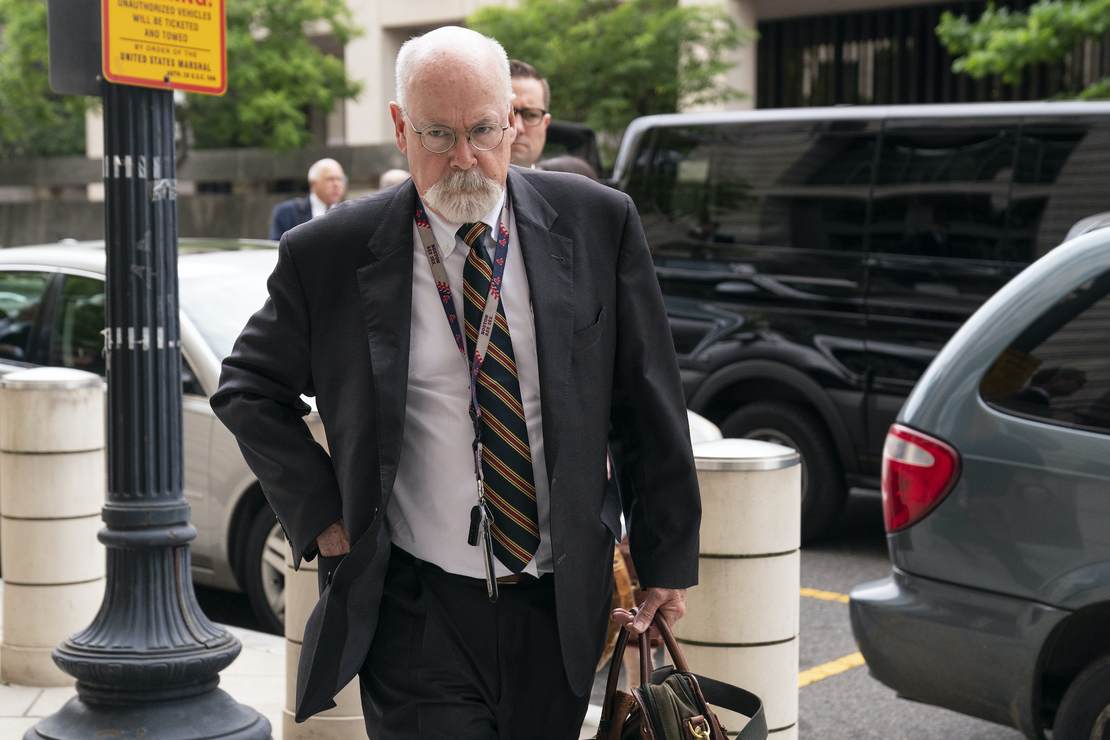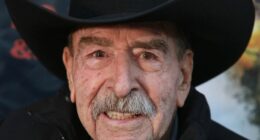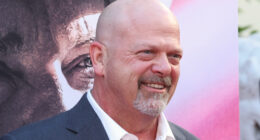
If we were to just look at the facts of the case against Michael Sussmann, they would all appear to support the charge against him: that he lied to the FBI when he said that he wasn’t working for anyone, when in fact he was working for the Clinton campaign. He even wrote a text to FBI General Counsel James Baker, specifically saying that he wasn’t coming in to see him on behalf of a client.
But the judge in the case, Judge Christopher Cooper (an Obama appointee) just made a finding that is likely to hurt the case, former federal prosecutor Andrew McCarthy notes.
I mentioned the damning text. But the judge just ruled on Thursday that the prosecution can’t argue in its summation that the text is the false statement with which he is charged. In the text, Sussmann said, “Jim — it’s Michael Sussmann. I have something time-sensitive (and sensitive) I need to discuss. Do you have availability for a short meeting tomorrow? I’m coming on my own — not on behalf of a client or company — want to help the Bureau. Thanks.” That would appear to be the smoking gun.
But the problem is that they didn’t have the text when they filed the indictment, it wasn’t part of the alleged evidence so they weren’t alleging that was the false statement. Baker claims he didn’t find the message until six months after the indictment was filed, so he didn’t turn it over to them before then. But because it was past the statute of limitations by the time that was found, the Durham team who might ordinarily add it as a separate charge in a superseding indictment couldn’t do that.
That means that their main evidence is James Baker’s somewhat sketchy memory. Because he felt he was talking to a “friend,” he didn’t follow the normal protocol that one might if he was an FBI agent doing an interview–that would be one agent conducting the interview, while a second agent would be taking notes.
But that said, that doesn’t mean that the text can’t be considered by the jury.
Importantly, this does not mean the text is out of the case completely. To the contrary, prosecutors will still be permitted by Judge Christopher Cooper to argue that the text is strong evidence that Baker is correct that, at the September 19 meeting, Cooper insisted that he was not representing a client. Prosecutors will point to the text right before the meeting, as well as Baker’s telling other FBI officials right after the meeting that Sussmann had said he was not representing a client. Based on that, Durham’s team will argue that the proof of Sussmann’s false statement is convincing.
READ RELATED: Why was there no armed security at Robb Elementary School?
Nevertheless, prosecutors will not be permitted to argue that Sussmann is guilty of making a false statement solely based on the text. To convict him, the jury must be convinced that Sussmann made the false statement at the meeting with Baker.
While that makes things tougher, the jurors aren’t blind, and while they’re being told they can’t consider it as THE false statement, saying that it can be considered as “strong evidence” that Baker is correct about what Sussmann said allows them to consider it and know the truth. So, the question is: will they be looking at it with clear, unadulterated eyes?
Unfortunately, as we have mentioned in the past, that’s a question. As George Washington University law professor Jonathan Turley said on Fox on Thursday, the jury for Michael Sussmann is a question, too.
TURLEY: “I mean, he is facing a jury that has three Clinton donors, an AOC donor, and a woman whose daughter is on the same sports team with Sussmann’s daughter. With the exception of randomly selecting people out of the DNC headquarters, you could not come up with a worse jury” pic.twitter.com/RHqen6AMAc
— Benny Johnson (@bennyjohnson) May 26, 2022
He’s facing a jury that has three Clinton donors, an AOC donor and a woman whose daughter is on the same sports team as Sussmann’s daughter. With the exception of randomly selecting people out of the DNC headquarters, you could not come up with a worse jury.
That doesn’t fill me with a lot of assurance that there will be a fair verdict, even given the evidence. You never know with juries; if they are viewing the evidence honestly, it’s all there. But that’s not good when you need to have all the jurors finding beyond a reasonable doubt that Sussmann made a false statement.
Source:





